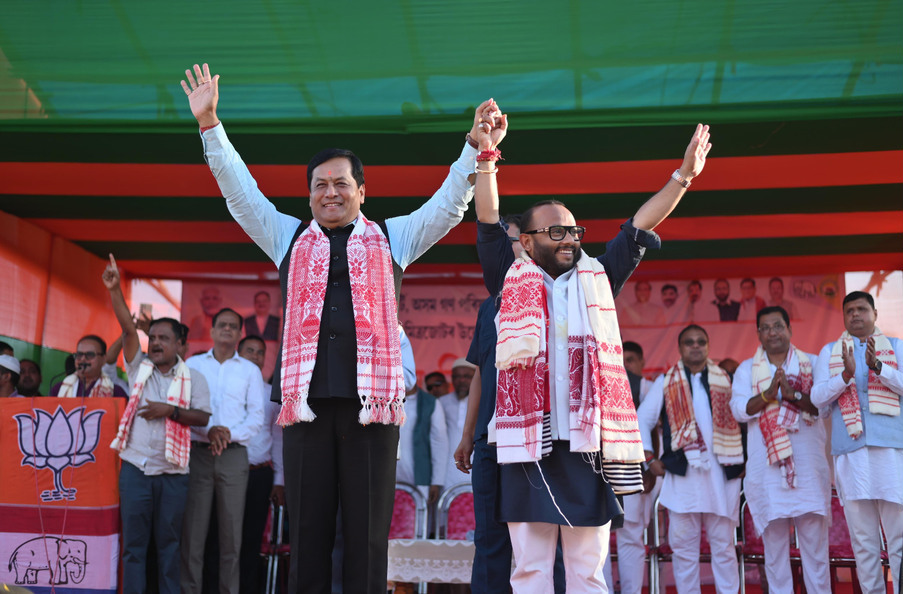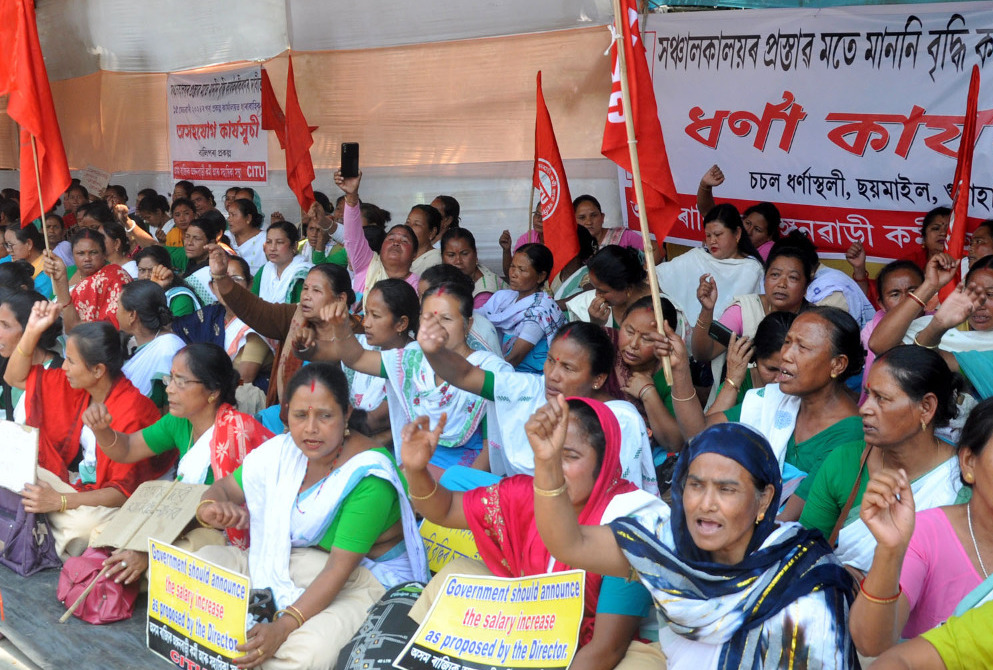GUWAHATI, Nov 10: Union Minister Sarbananda Sonowal on Saturday criticized the Congress for its history of “appeasement politics,” suggesting that such an approach had long prevented true empowerment for minority communities.
Speaking at a rally in Singimari under the Samaguri constituency to campaign for BJP candidate Diplu Ranjan Sarma, Sonowal contrasted the BJP’s approach, which he described as focused on “politics of empowerment” aimed at enhancing the quality of life for all, including the Muslim community.
Sonowal noted that since the BJP-led government took office in 2014, various initiatives have been implemented to benefit minorities through skill development, education, and economic opportunities. Programs like Jan Dhan Yojana, Seekho aur Sikhao, Hunar Haat, and USTTAD have provided avenues for financial inclusion, skill enhancement, and support for artisans, empowering people to contribute meaningfully to the nation’s economy.
Additionally, he cited reforms like the triple talaq ban and the Nai Roshni program, which focuses on leadership training for minority women, as transformative measures for improving the lives of Muslim women and ensuring gender justice.
Sonowal emphasized the BJP’s commitment to unity, stating that the NDA government is working to foster dignity, equality, and prosperity for all citizens, moving beyond the “divisive politics” of previous administrations. He concluded by affirming the BJP’s dedication to inclusivity and development, urging people to look forward to a future focused on progress and collective growth.
Sonowal, alongside Transport Minister Keshab Mahanta, Education Minister Ranoj Pegu, Industries Minister Bimal Bora, MP Kamakhya Prasad Tasa, and other BJP leaders, participated in a ‘Pad Yatra’ from Aambagan to Kawaimari under Singimari.
Sonowal underscored the BJP-led NDA’s commitment to nationwide progress, contrasting it with what he described as “the corruption and nepotism” of previous Congress leadership. He emphasized the transformation India has seen under Prime Minister Narendra Modi’s governance, which he credited with reducing social injustices and empowering communities, including Muslim women.
Citing data from the National Family Health Survey (NFHS-5), he noted the significant rise in literacy among Muslim women to 72.6% from 50.7% in the previous survey, which he attributed to the Modi government’s reforms, including the criminalization of instant triple talaq and the launch of programs like Nai Roshni, which aims to boost confidence and leadership among minority women.




